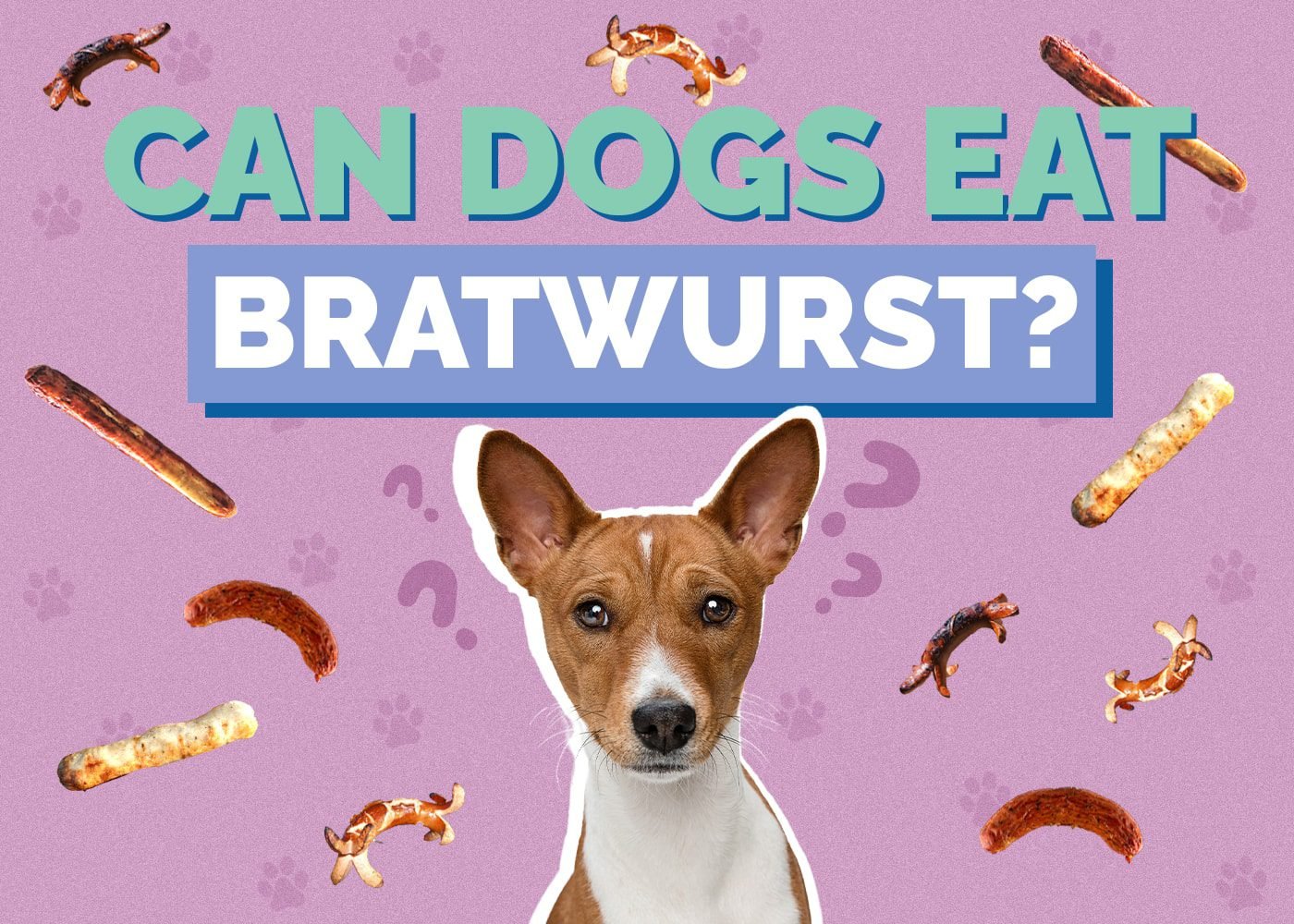
Can Dogs Eat Bratwurst? Bratwurst is a popular German sausage made from pork, beef, or veal. It’s often seasoned with spices like nutmeg, garlic, pepper, and sometimes onions, which give it its distinct flavor. While these ingredients are great for human taste buds, they may not be safe for your dog.
Bratwurst is usually cooked with oils, butter, or grilled, which increases its fat content. The combination of high fat and certain spices can make bratwurst a risky choice for your pet. Let’s dive into whether it’s okay to share this savory treat with your dog and what to watch out for. Let’s briefly discuss that- Can Dogs Eat Bratwurst?
Can Dogs Eat Bratwurst? A Balanced Perspective
Can dogs eat bratwurst? is a common question for dog owners who want to share their meals with their furry companions. While bratwurst may seem like a tasty treat for your dog, it comes with both potential benefits and significant risks. Here’s a balanced look at whether bratwurst is a safe option for your dog.
Benefits of Bratwurst for Dogs
- High Protein Content: Bratwurst contains protein, which is an essential nutrient for dogs. Protein helps with muscle repair and overall health. However, while bratwurst provides this benefit, it’s important to remember that the risks may outweigh this advantage unless carefully prepared.
Risks of Feeding Bratwurst to Dogs
- Toxic Ingredients: Some bratwurst contains garlic and onion, both of which are toxic to dogs. These ingredients can cause severe health issues such as gastrointestinal distress and even damage to red blood cells.
- High Fat Content: Bratwurst is high in fat, which can trigger pancreatitis in dogs or lead to obesity over time if fed too often.
- Excess Sodium: The high sodium content in bratwurst can lead to dehydration, kidney strain, and other health issues in dogs if consumed regularly.
Best Practices
- Avoid unless plain: If you do choose to give your dog bratwurst, make sure it’s plain, unseasoned, and free of any harmful additives like garlic or onion. This will significantly reduce the risk of harm.
- Serve in moderation: Even plain bratwurst should be given in small amounts, as the fat and sodium levels could still pose health risks if consumed in excess.
While dogs can eat bratwurst in moderation, it’s not the best food choice due to the potential risks involved. The toxic ingredients, high fat, and sodium content make it a food best avoided. If you do decide to give your dog bratwurst, ensure it is plain, unseasoned, and offered only in small portions. Always prioritize safer alternatives for your dog’s health and well-being.
Risks of Feeding Bratwurst to Dogs
If you’re wondering, “Can dogs eat bratwurst?”, it’s important to be aware of the potential risks before offering it to your dog. Bratwurst, a type of sausage, contains several ingredients that can be harmful to dogs. Let’s take a closer look at the risks involved when feeding bratwurst to dogs.
High Fat Content
- Risk: Bratwurst is known for its high fat content, which can be unhealthy for dogs. Excessive fat intake can lead to obesity over time, which increases the risk of other health problems like joint issues, diabetes, and heart disease.
- Pancreatitis: A high-fat diet can also trigger pancreatitis in dogs, an inflammation of the pancreas that can be severe and require immediate medical attention.
Toxic Ingredients
- Garlic and Onion: Both garlic and onion, which are commonly used in bratwurst, are highly toxic to dogs. Even small amounts can cause serious health issues, such as damage to red blood cells, leading to anemia, and gastrointestinal distress.
- Nutmeg: Some bratwurst may contain nutmeg, which is another harmful ingredient for dogs. Nutmeg can cause disorientation, increased heart rate, and other neurological symptoms if ingested by dogs.
Salt and Preservatives
- Excess Sodium: Bratwurst is often high in salt, which can lead to excessive sodium intake for dogs. High levels of salt can strain a dog’s kidneys and increase the risk of dehydration.
- Preservatives: Many processed sausages contain preservatives that could also upset your dog’s stomach or cause other long-term health issues.
Digestive Upset
- Oils and Spices: The oils and spices used in bratwurst can irritate a dog’s digestive system, leading to symptoms like vomiting, diarrhea, and stomach discomfort.
“Can dogs eat bratwurst?” The answer is no, not safely. The high fat, toxic ingredients, salt, preservatives, and digestive irritants make bratwurst a risky food for dogs. It’s best to avoid feeding your dog bratwurst and instead choose healthier alternatives to ensure their well-being.
Are There Any Benefits to Bratwurst for Dogs?
If you’re asking, “Can dogs eat bratwurst?”, it’s important to recognize that bratwurst does have some potential benefits, though they come with significant caveats. While bratwurst is not the best food option for dogs due to its many risks, there are a few aspects that might be beneficial under certain conditions.
Provides Protein
- Essential Nutrient: Bratwurst, like many meats, provides a good source of protein, which is essential for dogs. Protein helps maintain healthy muscles, tissues, and overall bodily functions.
- Benefit: In moderation, protein from bratwurst could supplement a dog’s diet, especially if it’s plain, unseasoned, and cooked properly.
May Be Safe if Unseasoned, Cooked Plainly, and Given in Moderation
- Moderation is Key: If bratwurst is prepared without any harmful seasonings or spices (such as garlic, onion, or salt), it might be less harmful to dogs in small amounts.
- Plain Cooking: Dogs can sometimes tolerate simple, plain meats, so bratwurst that’s free of additives and spices may not cause harm when given as an occasional treat.
Homemade Dog-Friendly Sausages Could Be a Safer Option
- Homemade Alternatives: Rather than buying store-bought bratwurst, you might consider making homemade sausages designed specifically for dogs. This way, you can control the ingredients and ensure they’re safe for your dog to consume.
- Healthier Choices: Homemade sausages can be made from lean meats, without harmful spices or preservatives, making them a safer choice for dogs compared to store-bought bratwurst.
“Can dogs eat bratwurst?” While bratwurst can provide protein, it’s best to avoid feeding your dog bratwurst regularly due to the potential risks from additives, spices, and preservatives. If you choose to give bratwurst to your dog, it should be plain, unseasoned, and given only in moderation. Alternatively, homemade dog-friendly sausages could offer a safer, healthier option.
What Should You Do If Your Dog Eats Bratwurst?
If your dog has eaten bratwurst, you might be wondering, “Can dogs eat bratwurst?” While bratwurst is not recommended for dogs due to its high fat, sodium, and spice content, sometimes accidents happen. Here’s what you should do if your dog eats bratwurst and how to handle the situation.
Check for Harmful Ingredients in the Bratwurst
- Toxic Additives: Some bratwurst sausages contain ingredients like garlic, onion, or nutmeg, which are toxic to dogs. If your dog has eaten bratwurst, the first step is to check the ingredients list to identify any potentially harmful substances.
- Look for Red Flags: Even if the bratwurst doesn’t contain harmful ingredients, the high fat, salt, and seasoning can still cause issues.
Monitor for Symptoms
- Digestive Upset: After eating bratwurst, your dog may experience symptoms like bloating, vomiting, or diarrhea. Keep an eye on their behavior for signs of digestive distress.
- Lethargy: Excessive salt or fat content may make your dog feel lethargic or unwell. Watch for any changes in their energy levels or behavior.
Contact Your Vet if Symptoms Persist
- Seek Professional Help: If your dog shows severe symptoms like continuous vomiting, diarrhea, or lethargy, it’s important to contact your veterinarian. In some cases, high salt or fat intake can lead to dehydration, kidney strain, or pancreatitis, which require immediate attention.
- Don’t Wait: It’s always better to consult with your vet if you’re unsure about the severity of the symptoms or if your dog’s condition worsens.
If you’re wondering, “Can dogs eat bratwurst?”, the answer is no, bratwurst should generally be avoided due to its harmful ingredients and high-fat content. If your dog does consume bratwurst, it’s important to monitor them closely for symptoms of distress, and always check the ingredients for any toxic substances. If any symptoms appear or worsen, contact your veterinarian right away for guidance.
Healthier Alternatives to Bratwurst for Dogs
If you’ve ever wondered, “Can dogs eat bratwurst?”, the answer is no, it’s not the best choice due to its high fat, sodium, and seasoning content. However, there are plenty of healthier and safer alternatives to bratwurst that you can offer your dog instead. These options provide necessary nutrients without the harmful additives found in bratwurst.
Plain Cooked Meats
- Chicken, Turkey, or Lean Beef: Simple, unseasoned meats like chicken, turkey, or lean beef are excellent protein sources for dogs. They are safe and nutritious, providing essential amino acids to support muscle and overall health.
- Why It’s Better: These meats are low in fat and do not contain harmful spices or additives. Just make sure to cook them thoroughly without any seasoning or sauces.
- How to Serve: Remove any skin, bones, or fatty parts before serving to prevent choking or digestive upset.
Dog-Safe Sausage Treats
- Specifically Made for Dogs: Instead of bratwurst, you can opt for dog-safe sausage treats available at pet stores. These are formulated with your dog’s health in mind and do not contain harmful ingredients like garlic, onions, or excessive sodium.
- Why It’s Better: These treats are specially designed to provide the taste dogs love while being safe and nutritious.
- How to Serve: Offer them in moderation as part of a balanced diet. Always read the packaging to ensure they are appropriate for your dog’s size and dietary needs.
Vegetables as Snacks
- Carrots, Sweet Potatoes, and Green Beans: These vegetables are healthy, low-calorie treats that provide important vitamins and fiber. They are gentle on your dog’s digestive system and can help satisfy their snacking cravings without any harmful side effects.
- Why It’s Better: Vegetables are natural and free from harmful additives. They also offer hydration and support a healthy digestive system.
- How to Serve: Serve raw or lightly cooked without any added seasonings. Be sure to cut them into bite-sized pieces to prevent choking.
Conclusion
In conclusion, if you’re asking, “Can dogs eat bratwurst?”, it’s not recommended due to the risks associated with its ingredients. Instead, healthier alternatives like plain cooked meats, dog-safe sausage treats, and vegetables can provide your dog with tasty, nutritious snacks that are both safe and beneficial for their health. Always remember to avoid seasoning and offer these alternatives in moderation to maintain a balanced diet.




